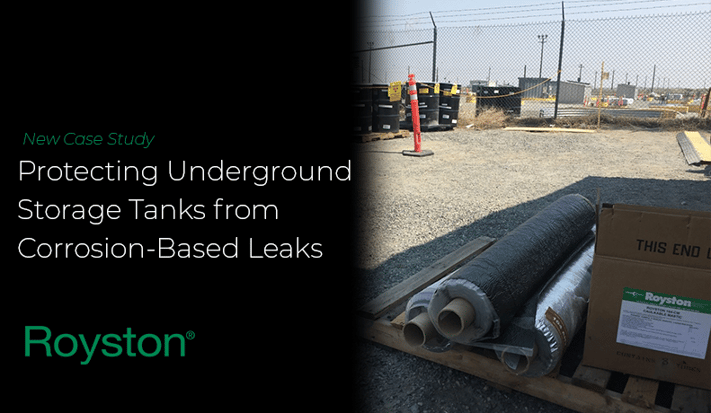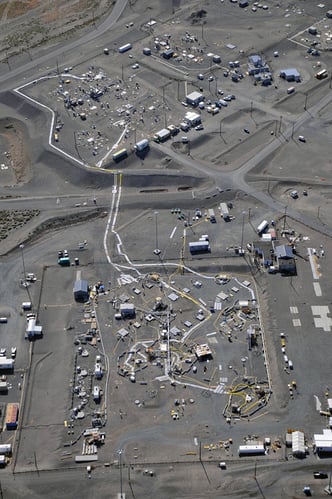The performance of an expansion joint in various service conditions depends, in large part, on the...
Protecting Underground Storage Tanks from Corrosion-Based Leaks

The SX Tank Farm, in Hanford, Washington, is a part of the now-decommissioned World War II production facility. This particular Tank Farm consists of fifteen single-shell steel tanks, each tank has a one-million-gallon capacity.
There are over 177 underground storage tanks in the Hanford Complex. The SX Tanks store waste material generated during production.
Stopping Rain from Intensifying Leaks
One of the major issues in the tank farm is the suspected leakage of hazardous chemical waste from a number of the underground steel tanks. The United States Department of Energy decided that something had to be done to stop and contain the leakage. In addition, the Department of Energy concluded they must mitigate the water from rain and melting snow that continually filtered through the contaminated ground soil and migrated underground towards the Columbia River.
 Picture from the Hanford Department of Energy Website (link)
Picture from the Hanford Department of Energy Website (link)
The decision made was to install a waterproof barrier over the underground storage tanks suspected of leaking this waste material into the soil. The solution consisted of a Royston waterproofing sheet membrane overlayed with polymer-modified asphalt. Further, corrosion of the underground tanks was deemed as the cause of all the suspected leaking.
Crews had to pump out as much of the waste material as they could from the original steel tanks and into double-shelled steel tanks. However, it was suspected that as much as one million gallons of waste may have contaminated the surrounding ground soil around the underground tanks. The decision made was to install a waterproof barrier over the underground storage tanks suspected of leaking the hazardous waste material into the soil
Related Article: Throgs Neck Bridge Deck Reconstruction Case Study
Why Choose a Waterproofing Membrane
The decision to specify a waterproofing sheet membrane/asphalt overlay system is a typical rehabilitation system for roads and bridge decks. Waterproofing sheet membranes have been specified by Departments of Transportation for use on bridge decks, exit and entrance ramps for years. And, when the system is properly installed, it will provide a long service life.
The physical composition of waterproofing sheet membranes may vary; however, the properties and characteristics are defined by a set of ASTM Standards.
The Standards typically include (but are not limited to):
- Elongation
- Tensile Strength
- Water Vapor Transmission
- Softening Point
- Water Absorption
- Puncture Resistance (among other physical properties)
The Chase Corporation’s Royston 104 AHT waterproofing sheet membrane was selected for this project. This waterproofing sheet membrane is a prefabricated reinforced laminate constructed with a woven fiberglass core. The core is positioned between two layers of a polymer-modified, rubberized bitumen adhesive with a one-quarter-inch mylar surface film. Royston waterproofing sheet membrane can be used for industrial and commercial projects.
Related Article: Case Study: Waterproofing Expansion Joints in High Temperatures
The applications include at or below-grade installations, bridge decks, roadways, and parking garages, as well as on various other substrates. Royston Membranes feature a unique three-inch leading edge that guarantees a positive compound-to-compound seal at the overlap. The transverse seals are easily made waterproof by using either Royston Flex Flo Adhesive or Royston 104 CM Mastic.
The Royston waterproofing sheet membrane and polymer-modified asphalt overlay will be installed over the 1.8-acre tank farm where the five underground ground tanks are suspected of leaking the chemicals. The installation of the barrier system will be paid for with economic stimulus money. Monitors will be installed to track and record the moisture levels in the soil. The Department of Energy will be installing additional barrier systems like the system described above.
If you have any questions or require information for your next paving project, please visit the Chase website at www.chasecorp.com/Rosphalt.







